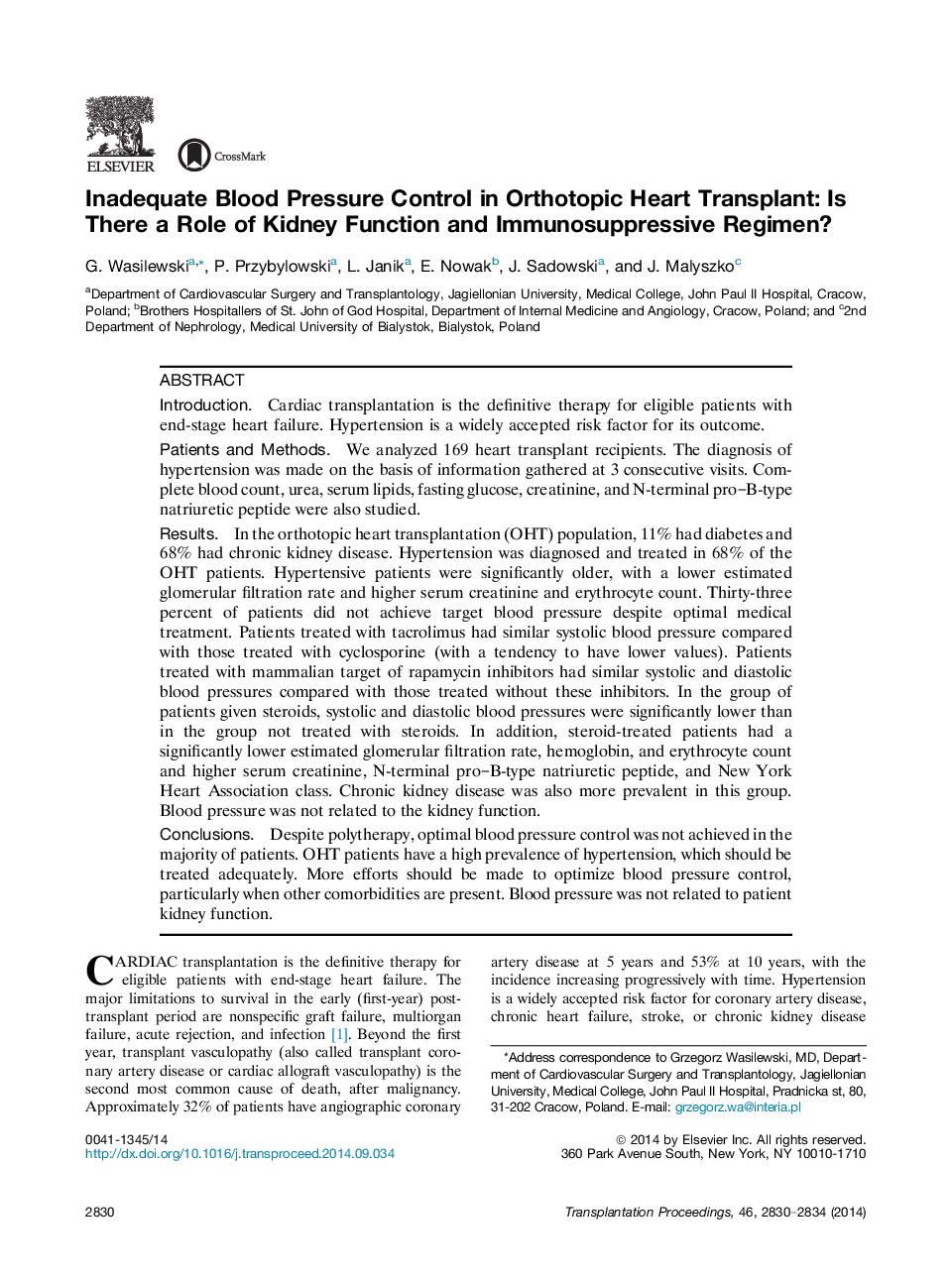| Article ID | Journal | Published Year | Pages | File Type |
|---|---|---|---|---|
| 4257997 | Transplantation Proceedings | 2014 | 5 Pages |
IntroductionCardiac transplantation is the definitive therapy for eligible patients with end-stage heart failure. Hypertension is a widely accepted risk factor for its outcome.Patients and MethodsWe analyzed 169 heart transplant recipients. The diagnosis of hypertension was made on the basis of information gathered at 3 consecutive visits. Complete blood count, urea, serum lipids, fasting glucose, creatinine, and N-terminal pro–B-type natriuretic peptide were also studied.ResultsIn the orthotopic heart transplantation (OHT) population, 11% had diabetes and 68% had chronic kidney disease. Hypertension was diagnosed and treated in 68% of the OHT patients. Hypertensive patients were significantly older, with a lower estimated glomerular filtration rate and higher serum creatinine and erythrocyte count. Thirty-three percent of patients did not achieve target blood pressure despite optimal medical treatment. Patients treated with tacrolimus had similar systolic blood pressure compared with those treated with cyclosporine (with a tendency to have lower values). Patients treated with mammalian target of rapamycin inhibitors had similar systolic and diastolic blood pressures compared with those treated without these inhibitors. In the group of patients given steroids, systolic and diastolic blood pressures were significantly lower than in the group not treated with steroids. In addition, steroid-treated patients had a significantly lower estimated glomerular filtration rate, hemoglobin, and erythrocyte count and higher serum creatinine, N-terminal pro–B-type natriuretic peptide, and New York Heart Association class. Chronic kidney disease was also more prevalent in this group. Blood pressure was not related to the kidney function.ConclusionsDespite polytherapy, optimal blood pressure control was not achieved in the majority of patients. OHT patients have a high prevalence of hypertension, which should be treated adequately. More efforts should be made to optimize blood pressure control, particularly when other comorbidities are present. Blood pressure was not related to patient kidney function.
